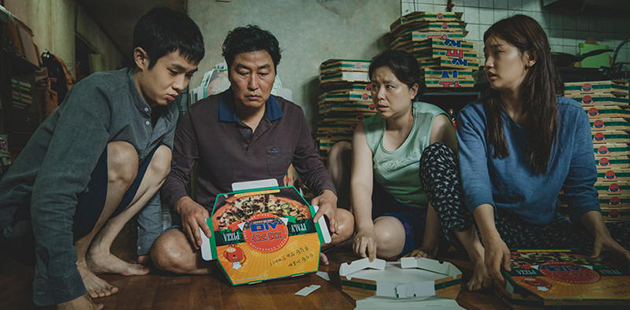 The Palme d’Or winning dark-comedy, Parasite, is a difficult film to review. On the one hand, Parasite presents itself as a long-awaited entry from a director who has spun the global spotlight back onto South Korean cinema. And on the other, it’s acclaim coupled with its subtext has left every film reviewer hankering to be smitten by its charm.
The Palme d’Or winning dark-comedy, Parasite, is a difficult film to review. On the one hand, Parasite presents itself as a long-awaited entry from a director who has spun the global spotlight back onto South Korean cinema. And on the other, it’s acclaim coupled with its subtext has left every film reviewer hankering to be smitten by its charm.
This circling of wolves on a deer opens reviews up for sounding repetitive, the stuff of which witty anecdotes and likening to being a masterpiece feel like regurgitated material appearing in newspapers and blogs everywhere.
While it is reassuring to know the consensus on Parasite feels the same, there is still need to ensure that the film – in all its brutal beauty – is not underscored in its attempt to scrutinize economic inequality.
The journey Parasite takes viewers on is both profound and visceral. To avoid undoing its powerful crescendo, the experience of watching Parasite is enhanced when knowing as little as possible about the film. The exception to this is knowing that Parasite, like the organism it is named after, will consume you on an emotional level.
Director Bong Joon-Ho (whose recent film credits include Snowpiercer (2013) and Okja (2017)) demonstrates masterful control thanks to his respectful handling of social issues and clear love for the characters. This results in a delicate yet brutal story on class, family and struggle.
Parasite builds to a bold third act that intentionally deflates the viewer’s mirth, something it had invested the first two-thirds of the film in building, so it may confront the viewer on the cyclical nature of financial disparity.
Bong’s storytelling incites a paradox from the viewer; the disrespect had by the upper echelon (who attempt to be modest acknowledging their position of power) towards the working-class mirroring that of an audience who finds humour watching poor people go to extreme lengths to survive. An effect that feels taxing but elevates absurdist material into ethical discourse – an effort that feels as though Bong were trying to use audience guilt as a realisation for inequality.
Acting in Parasite is first-class with all members of the cast balancing absurd humour and emotional heft with gusto. It is the principal cast, a family that lives on the fringes of South Korea, whose affection for one another illuminates the screen as brightly as the warm glow of Hong Kyung-pyo’s cinematography. This being said, Bong teeters back and forth between bright and dark with the cinematography seamlessly matching the narrative tempo.
Jung Jae-il’s score adapts to the heat of the scene, swaying from harrowing chimes to highlight deceit to dramatic opera as a soundtrack for tragedy. While Jae-il’s score is sublime in altering the mood of each scene – transitioning the film from dark-comedy to drama – it is moments of silence that most effectively create tension and moments of connection between characters.
Bleak, yet optimistic, Parasite is an intoxicating rumination on class and features the most disturbing scene involving a peach since 2017’s Call Me by Your Name.
Parasite screens in selected cinemas nationally from 27 June 2019. For more information, visit: www.madmanfilms.com.au for details.
Image: Parasite – courtesy of Madman Entertainment
Review: Hagan Osborne
